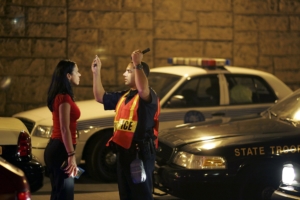I HAVEN’T EVEN BEEN CONVICTED YET, WHY HAS MY LICENSE TO DRIVE BEEN SUSPENDED?
The collateral consequences of a DUI conviction are numerous and harsh. But often my client’s primary concern is preventing their driving license from being suspended or restoring it upon resolving their matter. Because many DUI defendants struggle to understand the following important facts about DOL suspensions, and consequently make decisions in court that do not necessarily reflect their best long-term interests, it is worth publishing answers to the following common questions.
Why has my driver’s license been suspended if I have not been convicted of anything yet? Aren’t I innocent until proven guilty DUI?
The short answer is that you have a right to drive until your license has formerly been suspended by the Department of Licensing. But the Department of Licensing does not have to wait to suspend your license until you have actually been convicted of DUI.
This is because of the implied consent law, originally passed by initiative in 1968 and codified in 1969 as RCW 46.20.308. This law applies to those who refuse a breath test, as well as those who submit to a test but apparently do not pass it. In 2012, following the passage of Measure No 502 (decriminalizing Marijuana possession for those under the age of 21) the law was amended to require those suspected of operating a motor vehicle under the influence of cannabis had also implicitly consented to a test.
The policy behind the DUI law has been described as:
- To discourage persons from driving motor vehicles while under the influence of alcohol or drugs
- To remove the driving privileges of those persons disposed to driving while intoxicated; and
- To provide an efficient means of gathering reliable evidence of intoxication or nonintoxication.
The implied consent law provides that a person who drives in this State is considered to have consented to a test to determine the alcohol content of that person’s blood or breath if arrested for suspicion of driving under the influence of intoxicating liquor or any drugs. After arrest, if a driver refuses a breath test or submits to a test with results indicating an alcohol concentration of 0.08 or more, or 0.02 or above for persons under age 21, the arresting officer is directed to serve notice in writing on the person of the intent of DOL to suspend, revoke, or deny the person’s license, permit, or driving privileges.
The officer is also required to inform the driver of the driver’s right to an administrative hearing and the steps necessary to obtain such a hearing.
After a driver is arrested for suspicion of driving under the influence of intoxicating liquor, the arresting officer must notify the DOL of the arrest and transmit a sworn report or declaration authorized by RCW 9A.72.085 within 72 hours except as may be delayed because of administration of a blood test. Upon receipt of the officer’s sworn report, the DOL will notify the person that that person’s driving privilege is revoked, suspended, or denied and will afford the driver an opportunity to request a hearing to contest the suspension, revocation, or denial.
A driver’s license suspension or revocation hearing is an administrative proceeding governed by chapter 46.20 RCW. If a hearing is requested, the scope of the hearing covers, among other issues, whether the law enforcement officer had reasonable grounds to believe the arrested person drove a motor vehicle while under the influence of intoxicating liquor or any drug and whether the requirements of the implied consent statute were satisfied before a breath test was administered.
A hearing officer conducts the formal departmental hearing and may issue subpoenas for attendance of witnesses and production of documents. At the hearing, the law enforcement officer’s sworn report is prima facie evidence of a valid arrest and compliance with the requirements of the implied consent statute.
The sworn report and any other evidence accompanying it, as well as certifications authorized by the criminal rules for courts of limited jurisdiction, are admissible at the hearing without further evidentiary foundation.
If they’re going to have a hearing to terminate my right to drive, don’t I have the right to have an attorney represent me to preserve my right to drive?
You have the right to be represented by an attorney at your own expense during this hearing, but because you don’t not have a personal liberty interest at stake, you do not have the right to be represented at public expense.
Driving is a privilege, not a right.
The Court ordered that my license be suspended for only 30 days, but DOL has ordered it for the full two years. How is that allowed?
In short, there are two separate charges here and two separate standards of proof. If you refused the BAC test, your license is going to be suspended for 2 years even if you are found not guilty of DUI. The Court is determining whether to strip you of your liberty via a factual determination of whether you were DUI.
The DOL hearing is only looking for a factual determination of whether or not you refused your BAC.




